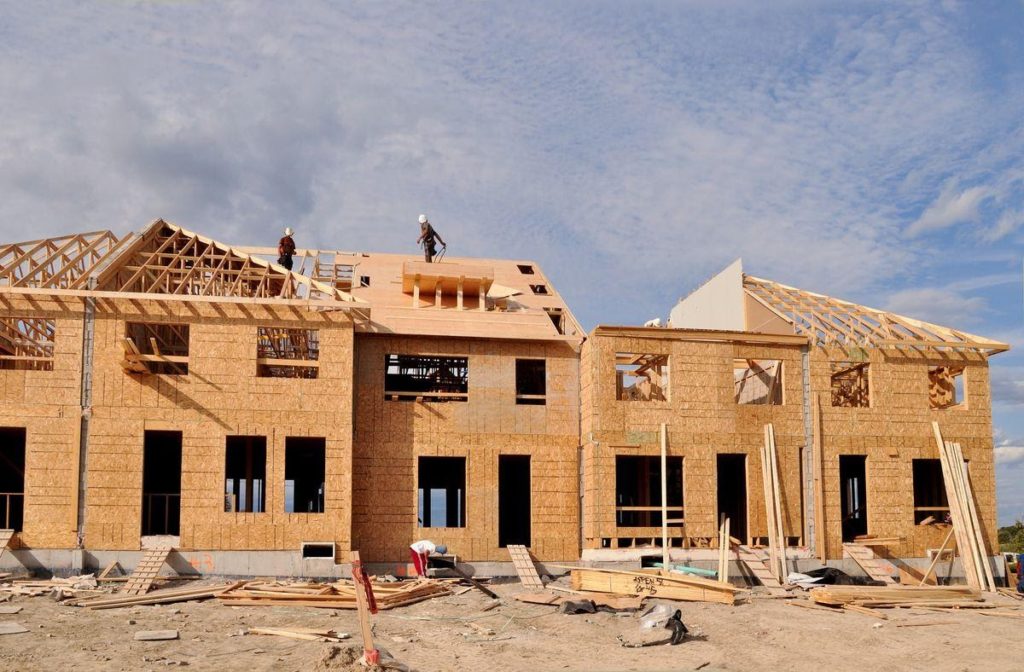The sector of Calgary real estate has evolved from brick-and-mortar to the service-driven product offering as well as its growth will be hugely affected by the ever-evolving technological transformations, customer requirements, and the favorable policy environment permitting it to prosper shortly. Single-family and Multifamily housing is given priority as housing requirements continue to
modify for Baby Boomers and Millennials. So, now the question arises – Will 2020 bring more similar results? Or how will the housing industry shake out in today’s economic climate?
Have a look at these top 7 emerging trends which will shape the real estate sector in 2020 –
- Co-living – Over the last few years, when it comes to Real estate,there has been an important change in the customers’
purchasing behaviors, specifically Millennials. They are more attracted to the co-living spaces which are comparatively more dynamic than the general rented space. Affordability has attained its breaking point also in those markets which previously bragged of the low-price housing. So, an attempt to address the issue is the rice in the co-living spaces among younger as well as older generations.

It is significant particularly as technology has turned this generation into a more isolated one and people are searching for more methods for connecting back to the community. Undoubtedly, co-living might be one of them, as well as, it is also another tactic to look for inexpensive housing.
- Hipsturbia – As more and more millennials become the parents of school-age children, as well as urban areas, continue what looks like an inexplicable rise in the Real estate rates, there is a steady and slow push toward suburbs. Live-work-enjoy districts that stimulated 18-hours or even 24-hour downtowns in the year of 1990s have expanded to a lot of suburban communities that are looking to become “hipsters”, or hip destinations in their right.

Wondering what the key to getting success is? Well, it is walkability as well as abundant retail, transit access, recreation, and restaurant options. You cannot be the suburb of anywhere, hence it is proved that wherever there are thriving urban centers, there can be nearby effective suburban cores as well as that offer a similar kind of environment.
- Rise in Technology – Technology into the market of Real estate in Calgary, both the smart home devices for the residential settings as well as protech that are the start-ups bringing latest ideas to the huge business of real estate, have been on the extent of a breakout for a long time. While the comparatively steady adoption of technology in the real estate sector continues, this is beginning to make a genuine impact.
Technology affects every property type, most evidently industrial and retail. The property managers are utilizing technology solutions for better operational efficiency and productivity enhancements. The smart home adoption, specifically security cams and digital assistants, are hugely common, as well as will turn out to be more so with the rise of 5G.
- Boost in the Commercial sector – Fortunately, even with the residential sector of Real estate in Calgary struggling as well as the economy slowing, the commercial sector has been displaying impressive traction. 2020 has an amazing potential for this field of real estate business. In the past few years, office space has gained traction in most of the cities with TeS/IT players contributing to the majority of leases.

White-Collar Migration and Rapid Urbanization will guarantee robust growth for the commercial sector, which will ultimately translate into the more residential demand. The sector of IT is making a move towards the high-value sectors like Data Analytics, Product Development, and Artificial Intelligence, supporting the increase in demand.
- ESG (Environmental, Social and Governance) – There is an increasing commitment to beliefs of ESG principles among companies in general as well as particularly in the sector of Real estate in Canada. Sustainability assessment is turning out to be the checklist thing for institutional investors worldwide and domestically. Both homebuyers and developers have been backing the idea of green technology.

This trend will consistently grow with the developers aiming at the technological advancements in obtaining raw products that are eco-friendly as well as sustainable and environmentally sensitive designs. Powerful interest by the millennials in socially and environmentally conscious business applications is the main element driving this tendency. Also, customers are choosing smart homes that make way for their sustainable living.
- The affordability crisis – The consistent undersupply of housing for sale, the transition, and the excessively increased poverty rate of the city, will all blend to keep the housing affordability center and front on the radar screens of policymakers. More often, Real estate in Canada is a sector that has talked about creating methods
for keeping the subsidized inexpensive housing units cost-effective once the subsidies run their course, as a lot of projects in the 2000s will do in 2020.

Instead of aiming at making it tougher to own in hopes of limiting the demand, there is a requirement to shift the thinking to boosting mid-rise, high-rise, and low-rise house supply through effective approval and policy processes.
- Impact of extreme heat – Without interference, extreme heat will negatively affect the investments of theCanada real estate market. For the buildings, high temperatures in the urban areas boost the building cooling load by 13%. Furthermore, extreme heat also worsens drought, air pollution, and wildfires as well as decreases the electrical grid stability. The high temperature will also impact consumer and tenant preferences. Changing temperatures refer to changing energy and thermal needs, impacting building design or resulting in expensive retrofits.

Needless to say, 2019 has been the year of reforms in the Canada real estate market with an enhanced aim on customer-centricity and transparency by both developers and policymakers. In 2020, the regulatory framework will further help in regaining your trust in this industry. There is no denying the fact that the above-mentioned trends will shape the real estate market’s future not only in Canada but also on a global scale.

